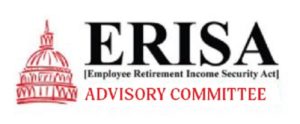
If you have a benefits issue with your employer, a Huntington Employee Retirement Income Security Act (ERISA) lawyer could advocate on your behalf. Sometimes, an appeal letter from an attorney with supporting documentation is sufficient to get an employer to reinstate or grant an employee’s benefits.
When the employer refuses to overturn the adverse decision after evaluating the appeal letter, we can file a lawsuit in federal court to ask the court to review the decision. The federal judge has the authority, under ERISA, to grant the benefits if appropriate. At Underwood Law Office, we represent employees who feel that their employers have wrongfully denied, delayed, or miscalculated their benefits.
What is ERISA?
Congress passed ERISA in 1974, according to the U.S. Department of Labor. This federal law provides rules that private employers must follow when they offer retirement plans or welfare benefit plans (like group health insurance policies) for their employees.
The purpose of ERISA is to protect workers from abuse and mismanagement by their employers. Retirement savings plans hold massive amounts of money that employees depend on for their future security. ERISA requires that those who manage these accounts must act in the best interests of the plan’s participants.
Transparency and Accountability
Also, ERISA mandates that covered employers must make sure that their participating employees have access to information about the retirement savings plans and health benefits. Plan administrators must exercise full transparency and accountability.
ERISA is sophisticated legislation because it involves three separate bodies: the Internal Revenue Service (IRS), the Labor Department’s Employee Benefits Security Administration, and the Pension Benefit Guaranty Corporation. All of these organizations enforce the provisions and requirements of ERISA.
Types of ERISA Claims You can File
Although ERISA’s name only mentions retirement income, it actually covers many kinds of employer-provided benefits. An ERISA claim can arise when a private employer refuses to give an employee information about their benefits. It can also arise in situations where an employer denies their worker benefits, such as:
- A company pension, 401(k), 403(b), or another retirement plan
- Health insurance for medical, surgical, dental, or mental health care
- Long-term disability insurance
- Health savings accounts
- Severance packages
- Commuter or parking assistance
- Remote work expense reimbursement
- Life insurance
These are but a few examples of the many types of benefit plans that a private employer might offer for employees. A dispute about applying for benefits, getting information about benefits, or receiving benefits can be the basis for an ERISA claim.
For a free legal consultation with a erisa disability insurance lawyer serving Huntington, call (972) 535-6377
Why Would an ERISA Dispute Arise?
Many ERISA disputes happen because an employee gets a divorce. Here, the employer’s retirement benefits plan administrator needs to follow the terms of the court’s Qualified Domestic Relations Order (QDRO). This can admittedly get complicated in some situations.
Another area of frequent ERISA disputes is when an employer denies a disability claim or terminates disability benefits. Also, plan administrators sometimes miscalculate the amount of retirement income a former employee is entitled to receive.
Huntington ERISA Disability Insurance Lawyer Near Me (972) 535-6377
Who Has to follow ERISA Rules?
This law does not force employers to provide benefits, but it applies when a private employer provides benefits for employees. When churches or government agencies provide benefits for employees, ERISA does not have authority over those plans.
Private employers, however, must follow ERISA’s rules about vesting, disclosure, funding, and eligibility of employer-provided plans for employees.
Click to contact our ERISA Lawyers | Employee Retirement Income Security Act today
What Workers need to know about ERISA
When an employee experiences a significant life event, the worker needs to know how the choices they make will impact their retirement savings and health benefits. For example, you need to understand your options when you:
- Start your first job
- Change jobs or lose your job
- Get married or enter into a domestic partnership
- Have a baby or adopt a child
- Get separated or divorced
- Lose a family member
- Are getting ready to retire and deciding when that will happen
- Experience a disaster and need to apply for relief
The U.S. Department of Labor’s Employee Benefits Security Administration (EBSA) administers ERISA provisions that control these aspects of your employer-provided retirement and health benefits plans:
- How the benefits plan works
- How an employee qualifies for coverage
- The right an employee has to access information about the employer’s plans
- How to apply for benefits and make claims
- What happens to an employee’s retirement and health benefits when they lose coverage or change jobs
Also, ERISA has rules about mental health parity provisions and the disclosure of 401(k) plan fees.
Complete a Free Case Evaluation form now
HIPAA is an Amendment to ERISA
The Health Insurance Portability and Accountability Act (HIPAA) is a significant amendment to ERISA. Per the U.S. Department of Labor (DOL), some of HIPPA’s highlights include:
- Protecting the privacy of medical information
- Giving opportunities to enroll in a group health plan if you lose other coverage or go through a qualifying life event, like a divorce or the death of your spouse
- Preventing insurers from discriminating against employees and their dependents because of pre-existing medical conditions, claims history, genetic information, or any other health factors
If an employer-provided benefits plan violates any of these regulations, the employee could have a HIPAA-based ERISA claim.
You might want to talk to a Huntington ERISA lawyer if you find yourself in any of the situations that could be a violation. You do not have to tackle your employer on your own.
Begin Your Free Case Review With One of Our Attorneys Now
At Underwood Law Office, we fight for the “little guy” against their bosses and teams of lawyers. We defend the rights of employees and work relentlessly to get them the benefits they deserve. Our ERISA lawyer in Huntington will protect your rights and benefits.
You can call us today to explore your options.
Call or text (972) 535-6377 or complete a Free Case Evaluation form





